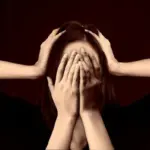Being bipolar means, in a colloquial sense, having a changing mood, going from sadness to joy, and from joy to anger. regarding trifles, in a matter of a few minutes, impulsively and unpredictably, throughout the entire day.
Being bipolar implies, also in its most popular meaning, going from love to hate in social relationships. In short, it is synonymous with great emotional instability and sudden changes in the person’s behavior that disconcert everyone.
Well… Nothing could be further from the truth. I clarified before that the description was in a “colloquial sense”, that is, what ordinary people, in general terms, “believe” it is to be bipolar. However, Bipolarity has to be understood as a concept linked to what is known as bipolar disorder.
The purpose of this article is to describe some typical behavioral manifestations of bipolar disorder that can help the rapid and effective recognition of the disorder by family or friends of the affected person, facilitating appropriate consultation with a mental health specialist.
You may be interested in: “Bipolar Disorder: 10 little-known characteristics and curiosities”
What is Bipolar Disorder?
Bipolar disorder is a rare and quite disabling disorder in many aspects, which makes the emotional state of those who suffer from it unmanageable, but which has nothing to do with what has been explained so far.
It is actually a mixed disorder, which combines episodes of deep depression, which can last for months, with episodes of mania, which usually last days or weeks.
Mania in bipolarity
We all know roughly what depression is: a mood disorder in which sadness, frustration or inability to experience feelings linked to joy is disabling for the person experiencing it. Now, what is mania? Well, nothing more and nothing less than a state of exacerbated joy.
During the cycle of depression, the bipolar person feels sunk in the deepest and darkest of abysses. In severe cases, they even lose interest in basic issues that contribute to survival, such as eating; and even less does he feel like taking a bath, going to work or going out with friends. He is in a state of helplessness and hopelessness in which nothing makes sense.
But when the person with bipolar disorder recovers from sadness, they invariably go to the other extreme, to pathological joy commonly called mania. Hence the term “bipolar.”
A person in a manic state feels euphoric, overflowing with energy, which leads him to commit all kinds of recklessness and excesses. In episodes of mania, the course of thought accelerates, as does verbal fluency, which often becomes unstoppable verbosity, in which the lack of a guiding line in the speech, the association of ideas, is very common. purposefully removed from arbitrary connections or personal meaning, childish jokes and misplaced jokes, which the individual fails to recognize as such, considering them extremely funny.
The consequences of the manic stage in Bipolar Disorder
When mania sets in, entire behavior becomes disorganized. Excess vitality means that the person does not feel the need to sleep and launches into unbridled sociability that leads them to easily make friends everywhere, and to attend marathons to all kinds of parties and events they can find.
Indiscriminate sexual relations without any type of protection are also frequent since a certain feeling of bravery and invulnerability appears. There are even cases of people who, being heterosexual in a normal state, embark on homosexual relationships incited by pure curiosity, and the overwhelming need to explore new experiences that make adrenaline circulate through their bloodstream.
All kinds of risk behaviors appear in this disease, at the same time that the capacity for self-criticism or self-control is blocked. The abuse of substances such as alcohol or drugs, reckless driving at high speed, and defiance or contempt for all forms of authority due to a strong feeling of omnipotence are common.
It is for this reason that from joy to suspicion, paranoia and open hostility towards others, there is only one step in cases in which bipolar disorder goes through the mania phase. It is common for the person to misinterpret ambiguous comments that others may make, understanding that they are personal offenses and consequently unleashing quarrels or physical fights that frequently involve unsuspecting relatives, friends or relatives.
More little-known aspects about this disorder
In a single night at the casino, a person whose bipolarity has given way to a state of mania can bet a month’s entire salary on roulette, since their judgment is profoundly altered, momentarily hijacked by exaggerated optimism: she may believe that she alone will break the bank.
It is also common in cases of bipolar disorder to saturate credit cards in just a few hours, due to compulsive and uncontrolled purchases. When this happens, and the family of the sick person decides to seek professional help, many times there is no other alternative than to prescribe hospitalization so that the patient can receive and adhere to the required pharmacological and psychological treatment in these cases, based on mood stabilizers and therapy.
Essentially it is a disease that has its origin in chemical imbalances and dysfunction of certain brain areas, which I do not intend to explain here so as not to bore the reader to death. For the moment, I will settle for this small contribution in order to clarify or shed some light on one of the most misrepresented and least understood mental illnesses by society.









